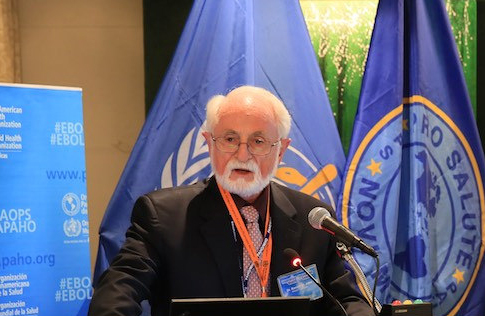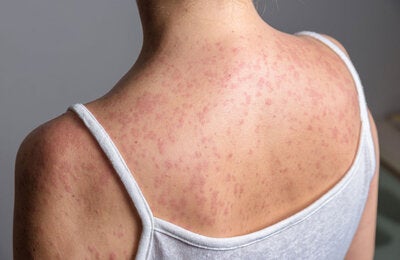

The Director of the Pan American Health Organization/World Health Organization (PAHO/WHO), Dr. Carissa F. Etienne, has appointed Dr. Ronald St. John, an infectious disease expert who led Canada's SARS response, as incident manager for PAHO/WHO's coordinated response to Ebola.
Washington, D.C., 18 November 2014 (PAHO/WHO) — The Director of the Pan American Health Organization/World Health Organization (PAHO/WHO), Dr. Carissa F. Etienne, has appointed Dr. Ronald St. John, an infectious disease expert who led Canada's SARS response, as incident manager for PAHO/WHO's coordinated response to Ebola.PAHO/WHO is providing support to countries in the Americas to prepare for the possible introduction of Ebola in the region. The goal is to ensure the early detection of any imported case and effective containment to prevent its spread. To date, no cases of Ebola have been reported in Latin America or the Caribbean.

A Canadian citizen, St. John is a board-certified physician in preventive medicine, with post-graduate training in infectious diseases and public health. He has 35 years of experience—including nine as a program coordinator and division chief at PAHO/WHO—in public health programs, legislation, and policy development. He has participated in emergency preparedness and response to communicable diseases, including SARS and HIV, in Canada, the United States, Mexico, Brazil, Argentina, and countries outside the Americas.
At PAHO/WHO, St. John will oversee the incident management system, established in the Organization's Institutional Response to Emergencies and Disasters plan. He will lead a team of PAHO/WHO experts and coordinate Ebola preparedness actions in PAHO member countries and with institutional partners.
Within this framework, PAHO/WHO is mobilizing expert alert and response teams starting this month to work with Member States in Latin America and the Caribbean to prepare for the potential introduction of cases of Ebola virus disease.
PAHO/WHO has been working with its member countries to ensure they have the necessary policies, procedures and human resource capacity in place to manage any introduction of Ebola. This work has included virtual and in-person training in preparedness, risk communication, and logistics as well as the dissemination of norms and standards for infection control, disease surveillance, use of personal protective equipment, collection and handling of highly pathogenic laboratory samples, and laboratory procedures.
For more information visit: www.paho.org/ebola



